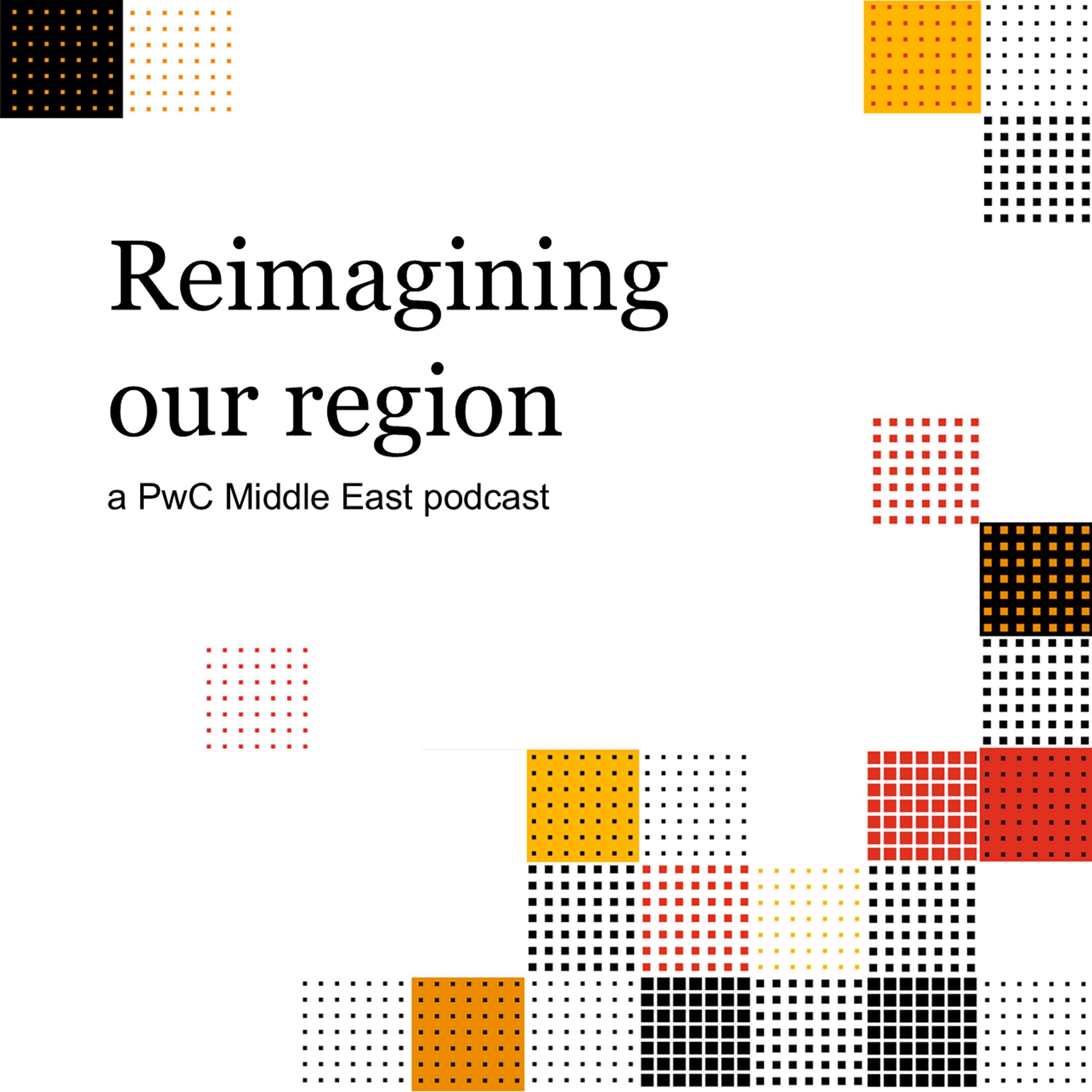Reimagining our Region

Reimagining our Region
Podcast Description
"Reimagining our Region" with Amal Larhild and Patricia Keating, is a PwC Middle East podcast that connects the dots in business. Each episode features expert insights on economic transformations, emerging technologies, and sustainable growth strategies, offering a fresh perspective on the forces shaping our region.Tune in for insightful conversations, fresh perspectives, and practical takeaways to help you navigate the region’s evolving business landscape.
For the full experience, watch all episodes on the PwC Middle East YouTube channel.
Podcast Insights
Content Themes
The podcast focuses on economic transformations, emerging technologies, and sustainable growth strategies, with episodes covering topics such as consumer demands in retail, the impact of AI on business practices, and the importance of trust and data security in building consumer loyalty.

“Reimagining our Region” with Amal Larhild and Patricia Keating, is a PwC Middle East podcast that connects the dots in business. Each episode features expert insights on economic transformations, emerging technologies, and sustainable growth strategies, offering a fresh perspective on the forces shaping our region.Tune in for insightful conversations, fresh perspectives, and practical takeaways to help you navigate the region’s evolving business landscape.
For the full experience, watch all episodes on the PwC Middle East YouTube channel.
The World Economic Forum describes the circular economy as “an industrial system that is restorative or regenerative by intention and design.” Unlike the linear model that creates waste and drains resources, circular systems return materials to the production cycle. Products and by-products are reused, recycled or repurposed — ideally powered by renewables.
In this episode, Amal Larhlid speaks with Melissa MacEwen, PwC’s Resource Use and Circular Economy Lead, and Jeremy Prepscius, Sustainable Supply Chains Lead in Asia Pacific. They talk about how circular models are being applied in the real world, where the barriers still lie, and why this shift matters for the Middle East.
More businesses and governments are adopting this model. As climate risks, supply disruptions and resource scarcity grow, circular systems offer a more stable path. It’s a chance to build resilience while cutting environmental harm.

Disclaimer
This podcast’s information is provided for general reference and was obtained from publicly accessible sources. The Podcast Collaborative neither produces nor verifies the content, accuracy, or suitability of this podcast. Views and opinions belong solely to the podcast creators and guests.
For a complete disclaimer, please see our Full Disclaimer on the archive page. The Podcast Collaborative bears no responsibility for the podcast’s themes, language, or overall content. Listener discretion is advised. Read our Terms of Use and Privacy Policy for more details.